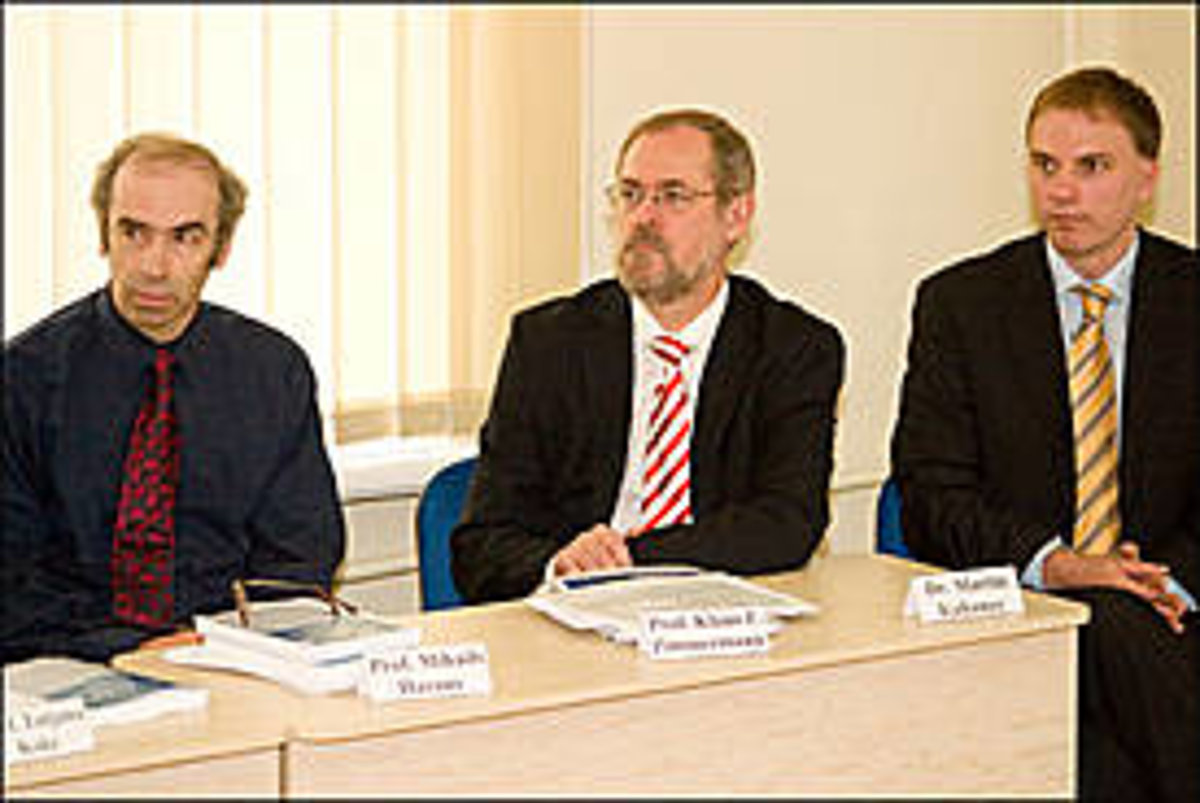
The editors of the book are Martin Kahanec and Klaus F. Zimmermann from the Institute for the Study of Labour in Bonn (IZA), and one of the co-authors is Mihail Hazan, professor at the University of Latvia.
The eastward enlargement of the EU has no negative effects on the labour markets of the old member states. Although it did create both opportunities and risks in the new member states, all considered, the EU benefitted from the enlargement. In the present economic crisis labour migration will have a significant role not only in mitigating the crisis effects but also in facilitating economic recovery. These are the main conclusions of the book EU Labour Markets after Post-Enlargement Migration.
In her opening address given at the presentation, Prof. Tatjana Koķe, Minister for Education and Science, emphasized that this research is very important to disengage from biased opinions and prejudices about migration. Presently the most alarming tendency is that more and more educated people leave the country in seek of better paid jobs.
Prof. K. Zimmermann has studied how European labour market has adjusted to the increasing mobility after the latest and most extensive EU enlargement. He concluded that the firmer are the market restrictions the fewer advantages there are for its stakeholders. A case in point is Germany, with its most strictly regulated and restricted labour markets. In the previous decades guest workers usually came to Germany and settled down; today Germany is the largest migration country in Europe.
It was mentioned at the presentation that in recent years the largest number of people have migrated to Ireland and Great Britain, but the major emigration comes from Bulgaria and Romania. These emigrants are doing well, but performing simple jobs, they gradually lose their skills and qualifications.
Prof. M. Hazan, the Latvian co-author of the book, considers the lack of boundaries between long term and short term migration to be one of the major migration challenges. People decide to go for a short period of time, but stay for a longer one; of course, it can also happen the other way around. These decisions are affected by both the choices of workers and by the changes in political environment.
Photos
Photos

 CONFERENCE
CONFERENCE